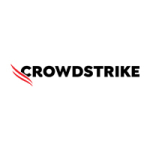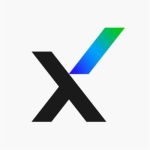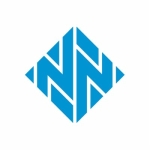What is most valuable?
The most valuable feature is agent compliance. When somebody plugs in a device and the device powers up, CounterACT goes through to make sure that rules we have in place are accurate or in line with what we'd expect. Once that completes, the machine gets an IP address from DHCP.
We could go into some other forensics. What happened to a device, let's say, it gets a virus. Okay, let's do some forensic work on it. When did the PC boot up? When did CounterACT first see it? What time stamps? We're able to see things of this nature.
The other nice thing we can do quickly when we're just doing audits or inventory is to pull up a list of clients. How many machines are on this switch? How many are on that switch? Are there switchboards that have more than two MAC addresses? If we know that a switchboard has, say, six MAC addresses on it, then we know that they probably have a hub.
How has it helped my organization?
I think the most valuable piece is to make sure that devices that we don't want on our network aren't on it. That's the most important. Somebody walks into a will-call area or to an area that's, say, open to the public, and they plug in a computer, that computer may have an exploit or is malicious in some way. It won't get an IP address and won't be connected. That's the most important feature.
What needs improvement?
I would like to see some reporting features. Things like, if our tech support department comes to us and says, "Hey, how many Dell model 390 PCs do we have in the company?" They can just click on a report that would show client name, machine model, IP address, last user login, etc. I think that people would find that very useful.
I think off-the-bat, when somebody pulls up the CounterACT interface, there's a lot going one. It's easy, but I don't think it's easy for somebody who just walks in blind. If there was a reporting feature, or something more incorporating tech support people, that would make their life easier. It mitigate the requests that we get to give them that information.
What was my experience with deployment of the solution?
We've had no issues with deploying it.
What do I think about the stability of the solution?
Overall, I think it's pretty stable. We did have some problems with the wireless plan. The wireless plug-in, where a device that we asked to be blocked for whatever reason, is not blocked. For a couple of months, we had the wireless plug-in disabled because too many end-users were being blocked when they shouldn't have been.
From the wireless standpoint, I would say that the reliability was somewhat poor, but CounterACT worked with us over a couple month period and did push out a patch. Today, things are better.
What do I think about the scalability of the solution?
We have three thousand end-user clients. Those are the majority of the people whom we monitor with CounterACT and not so much core devices like servers, or mainframes, or things of that nature. If we have to roll out an update to a client or some of our mobile users, it does so pretty seamlessly.
How are customer service and technical support?
They were very receptive, wanted to know exactly what was going on, wanted examples, etc. They did what they needed to do. Through some dialogue over probably about six weeks, we ended up getting an updated wireless plug-in, which seemed to resolve the issue.
Which solution did I use previously and why did I switch?
We were not using a device previously. I think the goal was originally, how do we know what's on our network? CounterACT solved that problem by allowing us to create our own rules that we wanted. It starts from a very high level and you can drill down into devices. We can now categorize, say, things like IOT devices such as clocks that operate wirelessly, building automation. We can get into all these different categories and groups of things. Whereas, before we really didn't know it. If you plugged in a device, you were getting an address from DHCP. Now, you have to meet these requirements to get an address.
How was the initial setup?
It was pretty straightforward. I've been in a number of roll-outs and this one was pretty easy.
We have one CounterACT appliance that does our Chicago office. A second appliance, which does our other four branches who are a little bit smaller. We separated that work and then we also have somewhat of a redundancy. As far as the configuration and getting things up and running goes, it starts with a nice, very high-level baseline. Then you kind of incorporate the rules that you want to incorporate as you go along, which makes it nice.
Which other solutions did I evaluate?
I think we went right after CounterACT. We sampled around I think on the web and just looked for solutions. But, CounterACT really came out to be the one that was easy to use. The price was right. The customizability and how we had to incorporate CounterACT to talk to our Cisco switches was really straightforward. It was easy and it worked.
What other advice do I have?
Absolutely go for it. I would love to give them a demo of our own environment, talk to people at CounterACT and roll it out. If it's within their budget, whatever that may be, absolutely I would use it.
Disclosure: My company does not have a business relationship with this vendor other than being a customer.
















